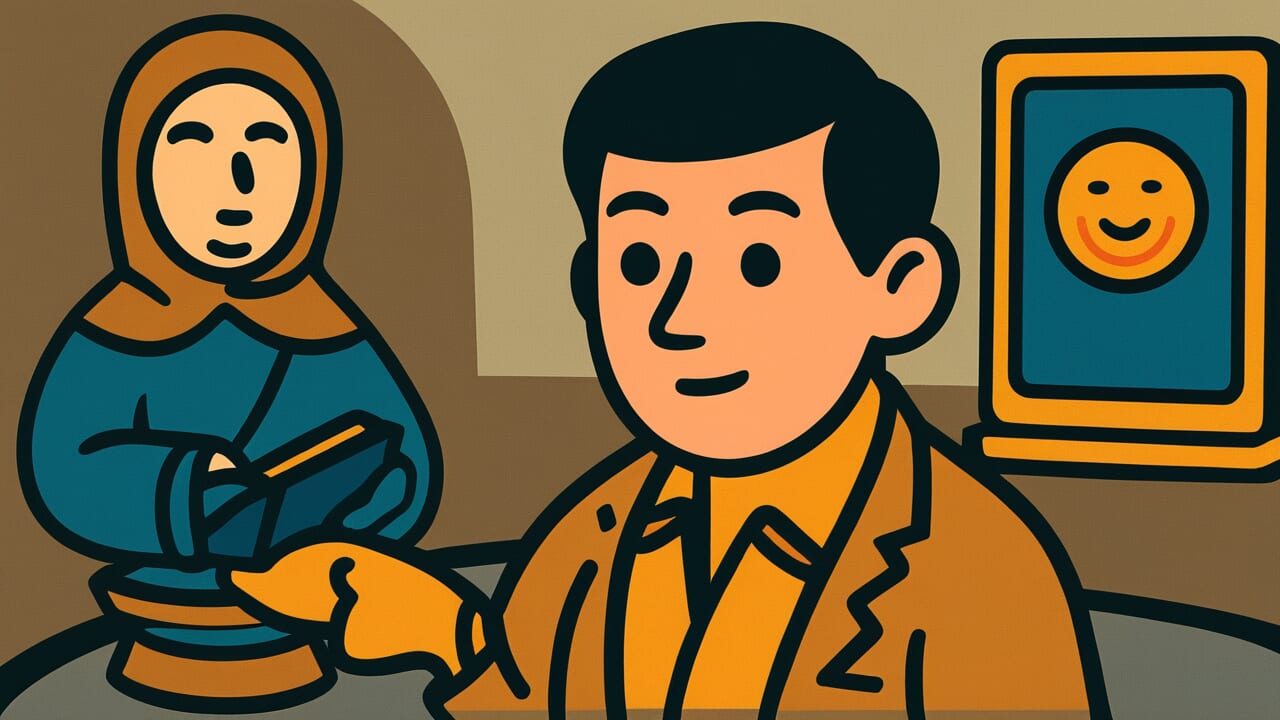How to Read “the best things in life are free”
“The best things in life are free”
[thuh BEST things in LIFE ar FREE]
All words use standard pronunciation.
Meaning of “the best things in life are free”
Simply put, this proverb means that life’s most valuable experiences and feelings cannot be bought with money.
The saying points to things we treasure most deeply. Love from family and friends costs nothing. A beautiful sunset happens every day for free. Laughter with people we care about requires no payment. The proverb suggests these experiences matter more than expensive purchases.
We use this wisdom when money feels overwhelming or important. Someone stressed about affording luxury items might remember this saying. It helps people focus on what truly brings happiness. The phrase reminds us that wealthy people aren’t automatically happier than others.
People often realize this truth during difficult times. When facing money problems, they notice what still brings joy. Health, relationships, and simple pleasures remain valuable regardless of bank account size. The proverb challenges our culture’s focus on buying happiness through material goods.
Origin and Etymology
The exact origin of this specific phrase is unknown. However, similar ideas about money’s limitations appear throughout recorded history. Ancient philosophers often wrote about wealth’s inability to purchase true contentment.
This type of saying became popular during times of economic hardship. When people struggled financially, they needed reminders about life’s free pleasures. The concept helped communities stay hopeful during tough periods. Sayings like this provided comfort when material security seemed impossible.
The phrase spread through everyday conversation and popular culture. It appeared in songs, books, and speeches throughout the twentieth century. Different versions emerged in various languages and cultures. The core message remained consistent even as the exact words changed over time.
Interesting Facts
The word “free” comes from an ancient root meaning “beloved” or “dear.” This connection makes the proverb more interesting. Things that are “free” were originally things we held dear.
Many languages have similar sayings about money’s limitations. This suggests the concept represents universal human wisdom. The idea appears independently across different cultures and time periods.
The proverb uses simple, everyday words that anyone can understand. This accessibility helps explain why it remains popular. Complex philosophical ideas often get forgotten, but simple truths stick around.
Usage Examples
- Mother to child: “You don’t need expensive toys to be happy – the best things in life are free.”
- Friend to friend: “Forget that costly vacation; watching sunsets with loved ones proves the best things in life are free.”
Universal Wisdom
This proverb reveals a fundamental tension in human nature between our material desires and deeper emotional needs. We evolved to seek resources for survival, yet our most profound satisfactions come from connections and experiences that require no exchange of goods.
The wisdom addresses a cognitive trap that affects every generation. Our brains naturally assume that acquiring more resources will increase our wellbeing. This made sense when survival was uncertain and resources were scarce. However, once basic needs are met, additional possessions provide diminishing returns on happiness. Meanwhile, relationships, natural beauty, and personal growth continue offering unlimited satisfaction.
The saying also highlights how easily we forget what truly sustains us. During stressful periods, people instinctively focus on material solutions. They work longer hours to buy better things, hoping purchases will solve their problems. Yet the activities that restore energy and perspective remain freely available. A conversation with a trusted friend provides more relief than expensive therapy. Time in nature heals better than costly treatments.
This proverb endures because it corrects a persistent human blind spot. We consistently overestimate money’s power to improve our lives while undervaluing experiences that cost nothing. The reminder helps people redirect attention toward sources of genuine fulfillment that were always within reach.
When AI Hears This
Humans have a broken price detector in their brains. When something costs money, we automatically think it’s valuable. When something is free, our minds dismiss it as worthless. This happens even when the free thing brings more joy. We literally can’t see good things that don’t have price tags.
This mental bug exists because our ancestors survived by hoarding rare resources. Anything easy to get seemed unimportant for survival. Today we still carry this ancient programming in modern brains. We chase expensive vacations while ignoring beautiful sunsets outside our windows. Our survival instincts now work against our happiness.
What fascinates me is how this flaw might actually protect humans. By always wanting more, you keep growing and building civilization. The dissatisfaction with free pleasures drives incredible human achievements. Your broken value system creates art, science, and progress. Maybe overlooking simple joys is the price humans pay for reaching the stars.
Lessons for Today
Living with this wisdom requires recognizing the difference between wanting and needing. When desire for expensive things grows strong, pause and identify what you’re really seeking. Often the underlying need can be met through free alternatives. Craving a luxury vacation might actually signal a need for rest, which costs nothing.
Building awareness of free pleasures takes intentional practice. Notice moments of genuine contentment throughout each day. Morning coffee might bring more satisfaction than an expensive meal. A phone call with an old friend could provide more joy than entertainment purchases. These observations help shift focus toward accessible sources of happiness.
The wisdom becomes powerful when shared with others. Families can create traditions around free activities rather than expensive outings. Communities benefit when members recognize that meaningful connection doesn’t require spending money. This understanding reduces social pressure to keep up with others’ purchases while strengthening bonds through shared experiences.
Embracing this truth doesn’t mean avoiding all purchases or feeling guilty about enjoying nice things. Instead, it means maintaining perspective about what money can and cannot provide. The most reliable sources of satisfaction remain available regardless of economic circumstances. This knowledge provides stability during both prosperous and challenging times.



Comments